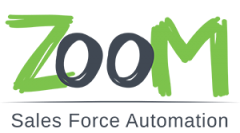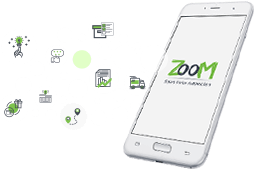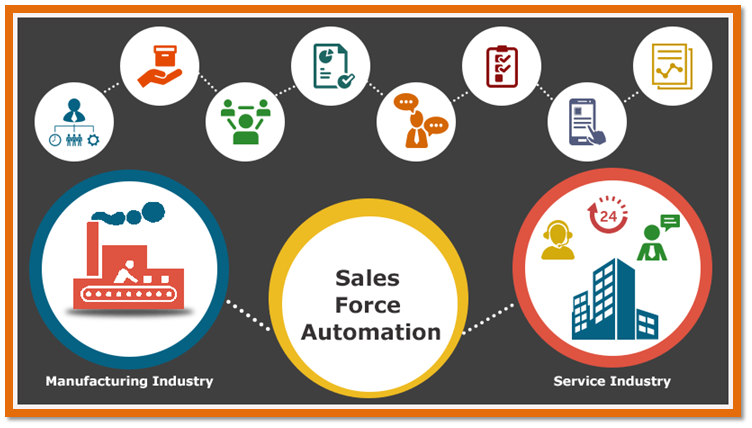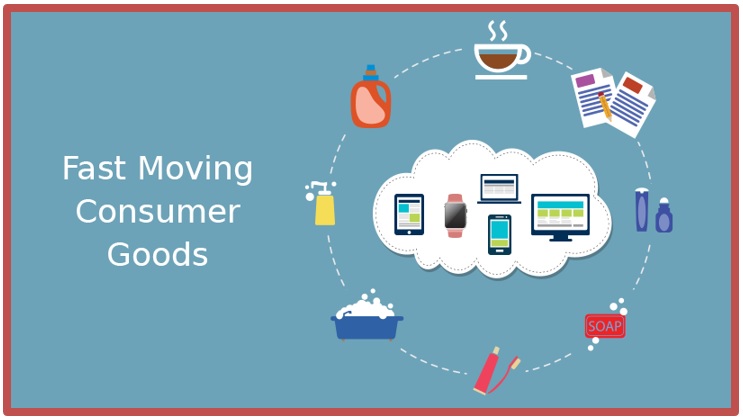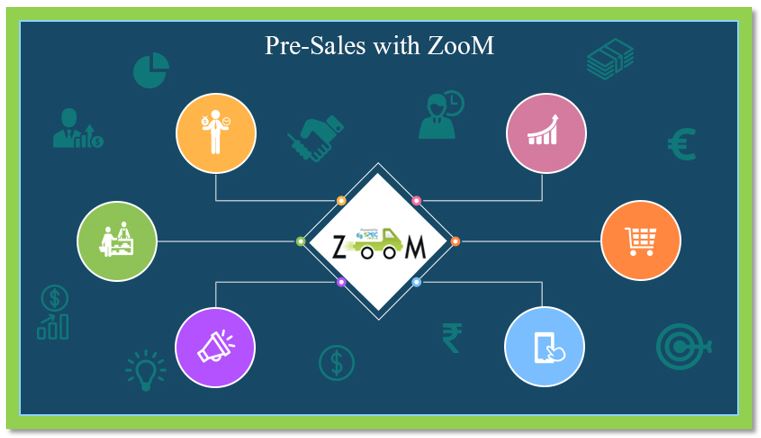“To make a real Digital Transformation, think of how you can weave a ‘digital thread’ through your operations, products, and services to support new customer experiences you’re trying to create.”
– Neil Ward-Dutton
Digital transformation has touched upon almost all industry segments, globally. All business stakeholders understand the importance of embracing technological advancements in their work. Agility, efficiency, revenue maximization, security, fast operations, user satisfaction, enhanced productivity – these are some of the very evident benefits that digital transformation is offering.
One area that has experienced the goodness of digitization is fleet management. It is no different. Technology has painted its magic over this arena and there are a lot of benefits being witnessed, especially in enterprise fleet management. Have a look at the below-proven statistics:
The global fleet management market size is expected to grow from USD 19.9 billion in 2020 to USD 34.0 billion by 2025
– Source: marketsandmarkets.com
42% have seen fewer safety incidents since using fleet tracking software to monitor driver behavior.
– Source: teletracnavman.com
With the pandemic striking hard in 2020, remote fleet management has seen a rise. Customers are expecting service anytime, from anywhere via any device and that has been managed through digital influence on fleet management, especially in digital transformation in transformation and logistics.
What Is Fleet Management Software?
Fleet management software (FMS) is computer software that enables people to accomplish a series of specific tasks in the management of any or all aspects relating to a fleet of vehicles operated by a company, government, or other organisation. – Wikipedia
A fleet management software caters to challenges faced by the fleet taskforce in the areas of vehicle purchase, fuel administration, vehicle upkeep, health and safety compliance, cost control and information overload. It focusses on effective management of vehicles, equipment, and assets.
It empowers fleet managers to garner accurate information on the status and performance of their fleet taskforce instantly. There is a well-organized database with relevant applications that can extract needed information and metrics, at the tip of the finger. This software applications turn out to be ideal for having maximum uptime and enhancing productivity.
Major Modules Of A Fleet Management Software:
- Vehicle management
- Driver management
- Incident management
- Tracking
A fleet management software can be an integral part of robust sales force automation software. Digitizing the field force activities with an effective SFA solution will embed automation into the entire sales force process, offering a great client experience, within stipulated budgets.
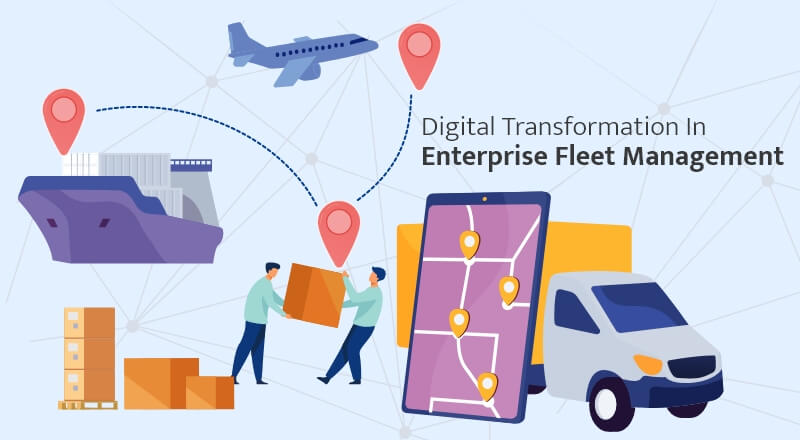
How Has Digital Transformation Enhanced The Fleet Management Platform?
Vehicle Telematics And Fleet Tracking Automation
Telematics is an interdisciplinary field that encompasses telecommunications, vehicular technologies (road transport, road safety, etc.), electrical engineering (sensors, instrumentation, wireless communications, etc.), and computer science (multimedia, Internet, etc.). It is a procedure to monitor assets like vehicles, heavy equipment, etc. with the help of GPS and diagnostic processes.
Modern-day technologies like AI, cloud-based services are influencing telematics and driving it strong. It is helping fleet owners and drivers in managing and monitoring vehicles in a better way. Digital transformation is performing at its best through telematics in the fleet management industry. Fleet tracking is one of the ideal methods to ensure the digitization of fleet operations. Through different telematics software, the real-time location of the fleet can be obtained, and further action can be taken, as needed.
Today’s modern-day fleet mostly consists of installed telematics units that are apt at digitizing fleet operations. Telematics offers important data like asset utilization information, fuel utilization and optimization, preventive maintenance, route planning, driver’s safety measures, and a complete view of the driver’s behaviors.
Sales Force Automation
An ideal mobile sales force automation solution caters to modern-day requirements of the fleet managers. It caters to various activities like automation of field force activities, attendance registration, BI analytics and dashboards/reports, process of order capturing till invoicing, automating van sales, sales route management, applying a variety of surveys, deals and promotions.
These SFA solutions have been proven ideal for maximizing the RoI, increasing sales efficiency, getting accurate sales data visibility, live tracking of field activities, enhancing customer touch time, expanding market reach, reaching out to different business models.
Field Service Management
Field service management is a digital transformation initiative in the fleet management industry that offers a comprehensive group of competencies like asset management, performance management, sales, and service etc.
It empowers real-time fleet asset management and maximizes the performance of the fleet, within the stipulated budget and time. It takes care of tracking the assets and utilization of the same in a real-time mode, in such a way that information can be obtained from any place, anytime.
Custom, Predictive And Preventive Analytics Through IoT Devices
With the usage and help of IoT devices, sensors, and smart devices, the availability of real-time information is easy. This collected data can be analyzed through various predictive and preventive analytical methods, offering detailed insights into information. This can help fleet owners, managers, and drivers to delve deeper into maintenance schedules, order management, etc. The presence of IoT and technologies like BI, Big Data, and AI make things faster, secure, and more accurate.
This is complete automation of workflows due to which supervision and completion of routine tasks are much efficient and accurate. All sales and services are integrated into a single process, becoming easy to manage and maintain. There is an availability of custom reporting techniques through which a multitude of dashboards and analytical reports can be generated. All these digitization activities can reduce vehicle downtime to a large extent and thereby, utilize their capabilities to the maximum.
Regular Inspection Monitoring And Scheduling
For the fleet to function smoothly, it is necessary to monitor and schedule inspections regularly for the repair and maintenance of the fleet. This way, you can save big time on money and efforts. Today’s modern day digital activities are apt in regularly planning and monitoring inspection activities for the entire fleet and coming up with different reports to help fleet owners take appropriate action.
Vehicle Management System
Managing the fleet and its fuel consumption is one big task. An efficient vehicle management software can do wonders by optimizing routes, helping drivers reach their places quickly, saving on fuel, enhancing productivity and profitability.
The GPS-based vehicle tracking and fleet monitoring system focuses on fleet tracking and monitoring requirements of fleet owners, distribution firms, etc. in a different division of industry domains i.e. Logistics, Transportation, Distribution, Retail, FMCG and Supply Chain Management, etc.
Blockchain Technology For Logistics
Blockchain technology has been an immensely popular one in the world of digitization and it has done quite good to the world of fleet management. Storage of important information, exchange of financial information, protecting IoT systems, streamlining transactional flows, garnering deeper insights into fleet management workflows – these are some of the evident benefits that can be availed by fleet owners through Blockchain.
Seamlessly sharing information with different stakeholders becomes easy with this technology. A blockchain enabled fleet management solutions helps bigtime in getting real time location of the fleet along with necessary conditions and certifications.
Key Benefits Of Digital Transformation In Fleet Management
Automation of Processes Leading to Fast Execution:
Manual processes had their own share of troubles like slower execution, insecure information, and wastage of resources. Digitizing the processes would mean enhancing communication, fastening results, effective administration, adhering to safety standards and offering instant information as and when required.
Better Safety Of Vehicles And Driver Efficacy:
The main goal of good fleet management software is to monitor the fleet and ensure their safety. With important information like driver details, detailed maintenance reports, fleet security, analytics metrics, etc., it is viable to keep a detailed track of vehicles and ensure their long run and safe drives.
Getting details of the drivers regularly also helps in monitoring driver activities and helps prevent any kind of misuse of malicious activity on the driver’s part. Drivers also can get any required detail instantly, helping them perform at their best on the field. Real-time reports of drivers’ performance and fleet are available to help in taking futuristic business decisions.
Enhanced Utilization Rates, Saving On Time, And Costs:
Digitizing the fleet management helps big time in improvising the industry benefits and utilization rates. Efficient dispatch schedules and scheduling of fleet can lead to maximum usage of resources, saving on time, energy, and costs. Features like geofencing, fleet tracking, fuel/route optimization, preventive maintenance, etc. are great drivers to saving on costs, time, and efforts. Digitizing the components can offer the best possible connection to fast and secure delivery.
Enhanced Customer Experience:
It is a very natural outcome – once digitization steps in, the outcome of making the customer happy is much easier and well done. Effective fleet management will directly lead to an augmented client experience. Measuring KPIs, analyzing metrics, and offering analytical reports can lead to betterment in processes and maximization in productivity and profits.
Seamless Integration With Third Party Systems:
There are many software systems interacting with the fleet. A good fleet management software takes good care of the integration of these third-party apps and helps in a smooth flow of information within the apps. This results in a comprehensive and secure flow of information to the fleet management software from various sources like inventory management, driver management, warehouse management, etc.
On A Final Note –
Fleet management software is one of the most crucial software solutions in the global industry segment. Digital transformation in this industry has led to a lot of betterment in its functioning. Of course, there are challenges involved but they can be overcome with the implementation of effective software solutions – sales force automation solution. Fleet management can be done in an effective manner through SFA and it surely pays back with maximized revenue and high-end productivity.
Visited 4432 times